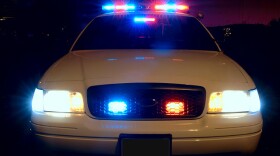President Obama’s call to equip police officers across the country with body cameras could change the way police interact with civilians, including those accused of breaking the law. Some experts say more study is needed before police agencies will know how beneficial body cameras can be and what the impacts really are.
Some believe body cameras will impede police work: if officers have concerns about what video will reveal, they may make fewer arrests, and could choose to avoid some situations altogether. And that's before opening a Pandora's box of legal and ethical issues, including how videos would be processed, stored and retrieved. Not to mention whether the recordings would be public and who would have access.
Camera systems are expensive. There is also a learning curve and maintaining the equipment. Donald Kelly, a partner in the law firm Tulley Rinckey PLLC, says police agencies would have to establish policies and procedures. "The standard every day footage would be preserved over time. Like what you see in a department store where the cameras record over themselves every month or so. Unless there's an incident they don't see any reason to preserve the recording over time."
Springfield Mayor Domenic Sarno and Police Commissioner John Barbieri say they support having police cameras. In February, a Massachusetts state labor management arbitration panel blocked the city from installing video cameras in police cruisers.
An arbitration ruling in March continued the block until completion of a joint study by the city and union. Talbert Swan, president of the Springfield chapter of the NAACP, was critical of the ruling. He said video cameras in cruisers promote officer safety and public accountability. " I think Springfield is a little behind the times in terms of the advancement of this technology."
But if police are acting as "human recorders," would the footage they gather really matter?
Appearing on NBC's "Today Show” to discuss the roiling Eric Garner case, New York Governor Andrew Cuomo admitted, like every other American and New Yorker who saw the video of Garner being held in what became a fatal chokehold by a police officer, his instinct was "this is not right"... "I'm sure if the justice system is working, that it's going to address this. And then it didn't. And I think what makes the Eric Garner case in some ways powerful is, you had the video, and you could watch the video. Now, technically, we don't know what was said in the grand jury room, we don't know what they heard. But in some ways, it doesn't matter. The perception is the problem."
Kelly labels the Garner incident an "aberration" and agrees with Cuomo it's hard to come to a logical conclusion without having access to the presentation to the grand jury that ended in no indictment. Outfitting police with body cameras could change the way police interact with civilians. Kelly anticpates the broader issue entails what protocol would be developed regarding camera use. "Whether it would be a mandate to an individual officer that he has to wear a camera, whether he has the discretion to turn it off at times, because oftentimes they are dealing with confidential informants and other people who they don't want to reveal their identity who are helping them do their jobs and who may not be as willing to help them if in fact they're being recorded. I think that's certainly an issue. If the officers have the discretion to turn them off, then the cameras are essentially useless."
Alice Green is Executive Director of the Center for Law and Justice in Albany. She says police have their own culture where they protect one another... "...and if they don't know they're being taped or watched that they will resort to sometimes very questionable tactics in terms of how they deal with people. That's one of the reasons that people are now calling for body cams, in hopes that that might stem the problem. But we're also concerned after seeing the Garner tape, it certainly suggests that that's not the answer, because you have a video, a very clear video in the Garner case, and it didn't seem to make any difference.
Green believes body cameras could become a tool to change individual officers' behavior. "I think it could be helpful in some situations. There are a lot of issues to be worked out to effectively use body cams, a lot of issues around how you use the technology, how you protect people's privacy with police officers having this tool."













